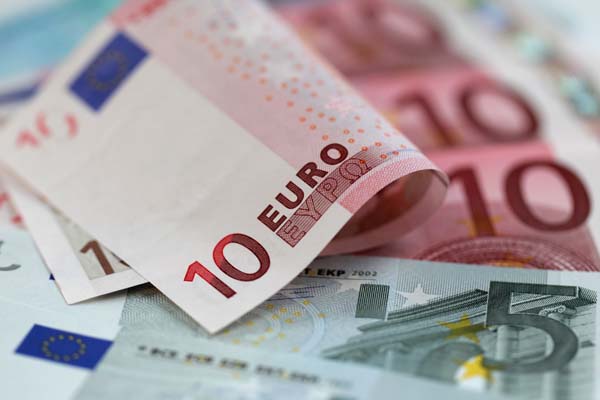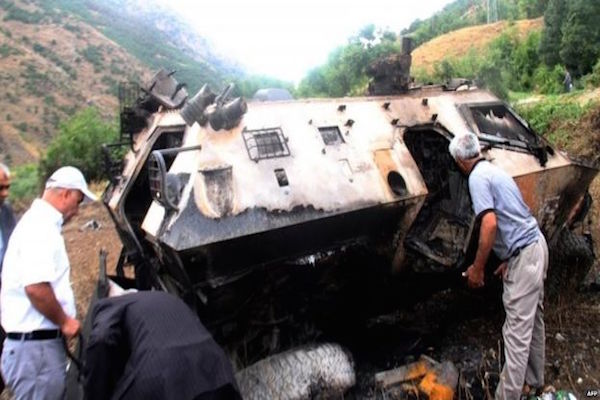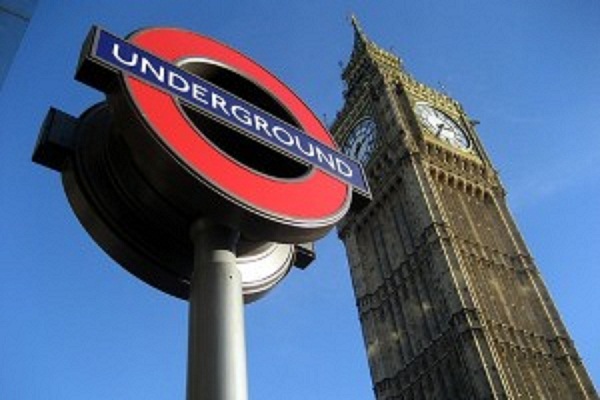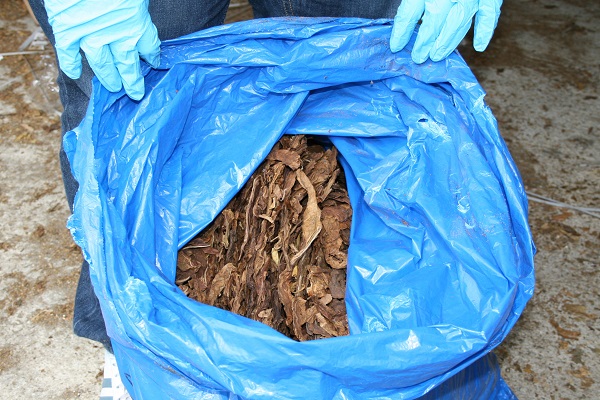Eurozone finance ministers and the International Monetary Fund struck a deal early Saturday to bail out Cyprus with aid of up to 10 billion euros, diplomats said after some 10 hours of talks. The debt rescue will involve "up to 10 billion euros," said one diplomatic source, whereas the initial request from Nicosia last year was for some 17 billion euros. The official said that the IMF would participate to the tune of one billion euros ($1.3 billion) in loans under the agreement. Under the deal, deposits in Cypriot banks would be hit with a one-off "levy" of up to 9.9 percent, depending on the amounts held. At the same time, a "withholding tax" will be imposed on interest on bank deposits, in a further hit for private investors in the Cypriot banking system. Monday is a bank holiday in Cyprus so it will be Tuesday before depositors will be able to react.
The talks dragged on as the Cypriot government fought to avoid such a "bail-in" or haircut for the banks, which Nicosia argued would trigger a run on its banks and ricochet on through the wider eurozone financial system.
Cyprus -- which accounts for just 0.2 percent of the combined eurozone economy -- thus becomes the fifth member state to secure a debt rescue package from its eurozone partners in the three-year debt crisis.
The price tag is very small compared with two rescues for Greece worth some 380 billion euros ($496 billion), Ireland's 85 billion euros, Portugal's 78 billion and 41 billion for Spanish banks.
Cyprus President Nikos Anastasiades attended the talks, as well as European Central Bank head Mario Draghi. IMF managing director Christine Lagarde had stressed beforehand the need for a watertight solution.
"We don't want a bandaid (solution). We want something that lasts, that is durable and sustainable," Lagarde said on her arrival.
"We have underlined with Wolfgang Schaeuble that we want to see an aid programme drawn up before the end of March, we are within that schedule," added French Finance Minister Pierre Moscovici, referring to his German counterpart.
Eurogroup head and Dutch Finance Minister Jeroen Dijsselbloem said the package was designed "to make sure that there is stability in the eurozone and that there is a new sustainable growth path possible for Cyprus.
Cyprus, whose banks were badly exposed to their failed peers in Greece, sought a bailout in June 2012 but negotiations proved difficult, with the country hoping to get help from Russia with whom it has strong ties.
Cyprus Finance Minister Michalis Sarris will reportedly fly to Moscow for talks Monday about extending a 2.5-billion-euro Russian loan payment due in 2016.
Russians are among the biggest investors in Cyprus, and hardline lenders like Germany had pressed for months for a clampdown on banks' alleged involvement in money laundering.
The total annual output of the Cypriot economy is 17 billion euros, and the IMF was concerned that a bailout on that level would take the country's debt burden to unsustainable levels.
CYPRIOTS STUNNED
Frustration over a delayed bailout turned to incredulity and anger in Cyprus on Saturday as islanders woke up to news that savers would be footing part of the bill to avert national bankruptcy.
In a radical departure from previous euro zone rescues for Greece, Ireland, Portugal and Spain, finance ministers struck a deal to lend the indebted island 10 billion euros ($13 billion). But in return, depositors would have to forfeit up to 10 percent of their savings.
Small queues of people gathered at cash machines across the island to withdraw money on Saturday, while co-operative credit societies had to shut to prevent a run on deposits.
A levy of 9.9 percent on deposits exceeding 100,000 euros, and of 6.7 percent on anything below that, is expected to generate 5.8 billion euros for Cyprus, which first applied for a bailout in June 2012.
The levy must be ratified by parliament before banks open on Tuesday, since Monday is a public holiday.
"My initial reaction is one of shock," said Nicholas Papadopoulos, head of parliament's financial affairs committee. "This decision is much worse than what we expected and contrary to what the government was assuring us, right up until last night," he told Reuters.
Papadopoulos, vice-chairman of the Democratic Party which is a coalition partner in government, said he did not want to predict how parliament would vote.
"If we go ahead with this, there is a great risk it is not the end, the banking system will still face instability because it will face a significant capital flight," he said.
It was unclear when parliament would convene, but banks had already taken steps to freeze the equivalent in deposit accounts.
Cyprus's euro zone partners had expressed an unwillingness to bail out an island some say is awash with Russian cash. But of an estimated 69 billion euros in the Cypriot banking system, only 37 percent is held by non-residents.
"I am extremely angry. I worked years and years to get it together and now I am losing it on the say-so of the Dutch and the Germans. It's not hitting the Russians," said British Cypriot Andy Georgiou, 54.
Georgiou moved his life savings to Cyprus in mid-2012, after selling his home in London.
BITTER PILL
The levy is a bitter pill for Cyprus, which took a disproportionately large hit from Greece's debt restructuring in early 2012 because of the close financial ties between the two countries. Its two largest banks sustained combined losses of 4.5 billion euros, equivalent to a quarter of the island's gross domestic product.
"I would like to know where that EU solidarity is. What did we get? Nothing," said mechanic Yiannis Pavlou, 28.
Savers reported they could withdraw cash, but couldn't carry out electronic transfers of funds. In Larnaca, co-op credit societies had to shut for business when people started queueing for their deposits.
"I thought anything below 100,000 euros would be safe," said private sector worker Andri Menelaou, 25, referring to a deposit threshold guaranteed by the state. "I don't have much but I don't see why I should pay for bank mistakes."
Eurozone, IMF agree 10-bn-euro Cyprus bailout
The euro zone struck a deal to hand Cyprus a bailout worth 10 billion euros
17 Mart 2013 Pazar 02:10
reads.



 Prime Minister Keir Starmer's 2025 Easter message
Prime Minister Keir Starmer's 2025 Easter message After Nesil Caliskan a by-election will be held in Jubilee ward in Enfield
After Nesil Caliskan a by-election will be held in Jubilee ward in Enfield Publishing the analysis, Labour’s Cllr Ergin Erbil said Everybody in Enfield deserves basic rights
Publishing the analysis, Labour’s Cllr Ergin Erbil said Everybody in Enfield deserves basic rights Gaza-Israel conflict Statement from Cllr Ergin Erbil, Leader of Enfield Council
Gaza-Israel conflict Statement from Cllr Ergin Erbil, Leader of Enfield Council UK AMBASSADOR TO TURKEY VISITS FETHIYE
UK AMBASSADOR TO TURKEY VISITS FETHIYE Journalists from Europe held the Turkish Media Workshop in Skopje
Journalists from Europe held the Turkish Media Workshop in Skopje The European Union called on Turkey to uphold democratic values
The European Union called on Turkey to uphold democratic values Turkish citizens in London said Rights, Law, Justice
Turkish citizens in London said Rights, Law, Justice The 'Prince of Paris' has impressed in his first EuroLeague season
The 'Prince of Paris' has impressed in his first EuroLeague season Saran Media And Euroleague Basketball Extend Media Rights Partnership for Four More Years
Saran Media And Euroleague Basketball Extend Media Rights Partnership for Four More Years Will Rangers be Jose Mourinho’s next victim?
Will Rangers be Jose Mourinho’s next victim? Jose Mourinho's Fenerbahce face Rangers on Thursday
Jose Mourinho's Fenerbahce face Rangers on Thursday Residents welcomed back to Edmonton Leisure Centre
Residents welcomed back to Edmonton Leisure Centre Barclays has become the biggest UK lender so far to cut mortgage rates
Barclays has become the biggest UK lender so far to cut mortgage rates THE SPRING STATEMENT EXPLAINED, UK ECONOMIC OUTLOOK AND GROWTH FORECASTS
THE SPRING STATEMENT EXPLAINED, UK ECONOMIC OUTLOOK AND GROWTH FORECASTS Launch of Made in Enfield gift shop to celebrate local artists and designers
Launch of Made in Enfield gift shop to celebrate local artists and designers



















